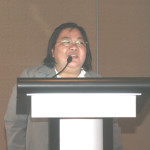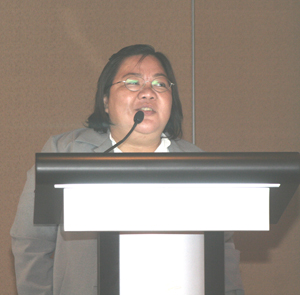
THE National Economic and Development Authority (NEDA) expects the Philippines to play catchup with its Association of Southeast Asian Nations counterparts over the next decade.
“The outlook for the country is very positive in the next 10 years and we can catch up with our Asean neighbors if we properly implement projects and initiatives related to trade facilitation and infrastructure,” NEDA national planning and policy staff officer in charge Myrna Clara Asuncion told participants at last week’s PortCalls Cargo Economics Conference.
While still suffering from effects of last year’s twin super typhoons, the country’s economy remains relatively strong since it did not go through a recession as did its neighbors.
Trade figures seem to bear this out. The Philippines’ trade volume as a percentage of gross domestic product (GDP) in the first half of 2010 was 92.2% after Malaysia’s 209.8% and Thailand’s 116.4%. Indonesia recorded a smaller percentage of 79.2%.
Asuncion said strong imports and exports are powering economic growth and this can only be good for the country’s cargo industry. Imports and exports are expected to rise 20% and 18%, respectively, this year. From January to August, exports have already soared 37.3% year on year. Imports from January to July are up 26.7%.
By 2011, however, exports and imports will slow down to growth rates of 13% and 18%, respectively.
This year, NEDA expects real GDP to rise 5-6% and to 7-8% by 2011-2016. Gross national product is seen jumping 7-8% this year and 9-10% by 2011-2016 with agriculture, industry and the services sectors as growth drivers.
Asuncion noted “seafreight volume has already surpassed 2009 levels while air cargo has so far maintained its 2009 figures but is on target to modestly surpass last year’s showing.”
In order to further boost trade, she said certain issues have to be addressed, including the need to cut both costs and documentary requirements for export and import shipments. In particular, Asuncion noted the country has the highest shipping cost among Malaysia, Indonesia and Thailand.
Moving forward, NEDA is eyeing greater private sector participation in infrastructure through the Public-Private Partnerhip (PPP), a strategy of the Aquino administration to finance government projects like infrastructure and basic services through the assistance of the private sector.
Asuncion said PPP strategies must focus on infrastructure support facilities for tourism, agriculture, social services, and growth centers; provide incentives to stimulate private resources; ensure competition fairness and transparency; provide assistance in the preparation of business cases, pre-feasibility studies (FS) and full FS, detailed engineering and tender documents; fast track the project approval process; and protect public interest.





